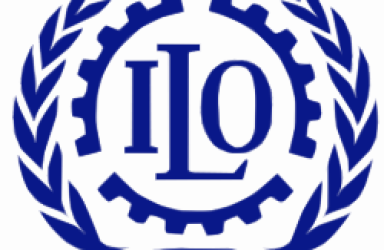A Critical Analysis of the ‘Great Debates’ That Structured Traditional International Relations Theory
The disciple of international relations, like all the social sciences, needs theories to make sense of the world it is trying to examine. The merits and faults of each school of thought have been contested in what are known as the ‘great debates’.
According to Hobbes, the Laws of Nature “Dictate Peace” and are Simple Enough for Anyone to Understand. Yet “Peace without Subjection” is Supposed to be an Impossibility. Why?
The impossibility of peace without subjection, even though men understand the laws of nature which dictate peace, is due to both the conditions in the absence of a common power and the passions of men. A Commonwealth is vital to provide restraint and security, in order for men to willingly lay down their natural right in favour of the natural laws.
Only Trees have Roots; But Men have Legs: Nationalism’s ‘Exclusionary’ Effects and the Overcoming of Common Misconceptions
The question of what nationalism is, is as essential as what it is not. Nationalism is a multisided phenomenon, not an ideology which is always dangerously exclusionary.
Does the ILO Problematize the Governance-Resistance Dichotomy?
Within the study of world politics, one of the ways in which theorists have transcended state-centric analysis has been to couch it in terms of the ‘politics of Governance’ and the ‘politics of Resistance’. The logic of politics within this context is the competition and conflict between these two ‘blocs’. However, the case of the International Labour Organisation (ILO) challenges this dichotomy.
The Understanding of the Rights of War and Peace in the Thought of Thomas Hobbes
An analysis of Thomas Hobbes’ the ‘Leviathan’ will focus on introducing the importance of the state of nature as an image of life without government. By using contemporary examples, the aim is to illustrate how states behave in the international paradigm in terms of ensuring self-preservation.
Francisco de Vitoria and On the American Indians: A Modern Contribution to International Relations
Francisco de Vitoria, a theologian of the 16th century and core writer of the Renaissance, questions our understanding of international affairs and, thus, International Relations as an academic discipline. He leads us to think about the ambiguity of the norms of the contemporary international system, and of international law.
An Evaluation of Challenges to the Traditional Notions of Sovereignty in the Post Cold-War Era
This essays discusses the ways in which four prevalent different definitions or spheres of sovereignty, have challenged the traditional notions of sovereignty since the early 1990s. These are; domestic sovereignty, interdependence sovereignty, international legal sovereignty and Westphalia sovereignty.
The Politics of Power and the Power of Faith: Retracing Martin Wight’s Legacy
Whilst disciples and collaborators such as Hedley Bull, Robert Jackson and Brian Porter speak of Marin Wight as a seminal thinker and erudite scholar, others such as Alan James claim that his influence on the discipline is limited. This paper proposes to assess Wight’s impact on the study of International Relations.
Kant’s Writings on the State of Nature and Coercion: The Domestic Analogy and the Level of Analysis
This essay argues that the early Kant largely followed the domestic analogy when describing the state of nature between individuals and states – directly affecting his views on coercion. The mature Kant however incorporated all the level of analysis into his writings and transcended but did not entirely abandon the domestic analogy.
Critically Evaluate at Least Two Positions that can be Found in Contemporary Debates about Just War Theory
The following essay will present an evaluation of the just war theory using the 1st Gulf war as a case study. The intervention reveals a number of issues regarding applying just war theory to contemporary conflict.











